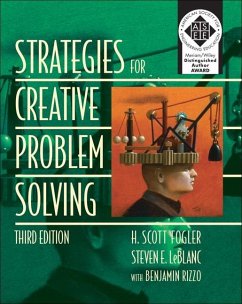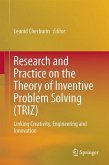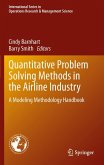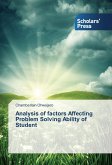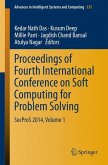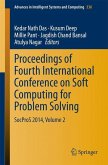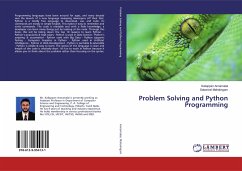To succeed, engineers and other technology professionals need more than technical and scientific knowledge: they also need problem-solving "street smarts." For 20 years, Strategies for Creating Problem Solving has helped thousands of them gain these skills. Now, award-winning authors and pioneering engineering educators H. Scott Fogler and Steven E. LeBlanc have updated their classic guide to make it even more relevant and effective.
Strategies for Creating Problem Solving, Third Edition offers a complete framework for strengthening and honing creative problem-solving skills in any technical discipline. It teaches practitioners and students how to:
Encounter an ill-defined challenge and systematically identify the "real" problem
Generate, compare, choose, and implement solutions
Evaluate success, failure, and opportunities for improvement
It introduces a proven problem-solving algorithm by presenting a series of graduated exercises intended to familiarize, reinforce, challenge, and stretch readers' creativity throughout the entire problem-solving process.
This edition's many improvements include:
Expanded, revised and updated examples throughout, including new Fermi examples
New material on making the case for change
Tighter linkages between problem-solving techniques and real-world applications
Even more opportunities to practice, strengthen, and deepen critical thinking and creativity skills
The first edition of this book earned ASEE's 1996 Meriam-Wiley Distinguished Author Award. Twice revised since, it's now more focused and useful than ever.
Product Description
A Tested, Proven Approach to Problem Solving—Updated with New Material and Current, Real-Life Examples
Strategies for Creative Problem Solving, Third Edition, will help you hone your creative skills and apply those skills to solve nearly any problem. Drawing on National Science Foundation-funded, advanced research that studied problem-solving techniques in all areas of modern industry, this book presents a comprehensive, systematic problem-solving framework. Through hands-on techniques and exercises drawing on realistic examples, you will learn how to approach an ill-defined problem, identify the real problem, generate and implement the best solution, evaluate what you’ve learned, and build on that knowledge.
This third edition has been updated and revised, further enhancing its value for engineers, technical practitioners, students, and anyone who wants to improve their problem-solving skills. Updates include
More than twenty-five new examples—based on recent, real-world events and topics—that illustrate the various problem-solving techniques
A Tested, Proven Approach to Problem Solving Updated with New Material and Current, Real-Life Examples
Strategies for Creative Problem Solving, Third Edition, will help you hone your creative skills and apply those skills to solve nearly any problem. Drawing on National Science Foundation-funded, advanced research that studied problem-solving techniques in all areas of modern industry, this book presents a comprehensive, systematic problem-solving framework. Through hands-on techniques and exercises drawing on realistic examples, you will learn how to approach an ill-defined problem, identify the real problem, generate and implement the best solution, evaluate what you ve learned, and build on that knowledge.
This third edition has been updated and revised, further enhancing its value for engineers, technical practitioners, students, and anyone who wants to improve their problem-solving skills. Updates include
More than twenty-five new examples based on recent, real-world events and topics that illustrate the various problem-solving techniques Expanded coverage of critical thinking and reasoning An introduction to structured critical reasoning New discussion of managing complex change Expanded and improved explanations of the components of problem-solving strategies
The first edition of this book earned ASEE s 1996 Meriam-Wiley Distinguished Author Award, and now it s more focused and useful than ever.
Companion Web Site
The book s companion Web site (www.engin.umich.edu/scps) is a valuable resource for students and instructors. The site contains
Interactive Computer Modules: Seven simulations linked to the book s content and designed to deepen your expertise with every stage of the problem-solving process Summary Notes: Chapter-specific material that highlights important points in each chapter excellent for classroom presentations and concept review Professional Reference Shelf: Additional examples and problem-solving materials Additional Study Materials: Course syllabi and Web links to related material
Strategies for Creating Problem Solving, Third Edition offers a complete framework for strengthening and honing creative problem-solving skills in any technical discipline. It teaches practitioners and students how to:
Encounter an ill-defined challenge and systematically identify the "real" problem
Generate, compare, choose, and implement solutions
Evaluate success, failure, and opportunities for improvement
It introduces a proven problem-solving algorithm by presenting a series of graduated exercises intended to familiarize, reinforce, challenge, and stretch readers' creativity throughout the entire problem-solving process.
This edition's many improvements include:
Expanded, revised and updated examples throughout, including new Fermi examples
New material on making the case for change
Tighter linkages between problem-solving techniques and real-world applications
Even more opportunities to practice, strengthen, and deepen critical thinking and creativity skills
The first edition of this book earned ASEE's 1996 Meriam-Wiley Distinguished Author Award. Twice revised since, it's now more focused and useful than ever.
Product Description
A Tested, Proven Approach to Problem Solving—Updated with New Material and Current, Real-Life Examples
Strategies for Creative Problem Solving, Third Edition, will help you hone your creative skills and apply those skills to solve nearly any problem. Drawing on National Science Foundation-funded, advanced research that studied problem-solving techniques in all areas of modern industry, this book presents a comprehensive, systematic problem-solving framework. Through hands-on techniques and exercises drawing on realistic examples, you will learn how to approach an ill-defined problem, identify the real problem, generate and implement the best solution, evaluate what you’ve learned, and build on that knowledge.
This third edition has been updated and revised, further enhancing its value for engineers, technical practitioners, students, and anyone who wants to improve their problem-solving skills. Updates include
More than twenty-five new examples—based on recent, real-world events and topics—that illustrate the various problem-solving techniques
A Tested, Proven Approach to Problem Solving Updated with New Material and Current, Real-Life Examples
Strategies for Creative Problem Solving, Third Edition, will help you hone your creative skills and apply those skills to solve nearly any problem. Drawing on National Science Foundation-funded, advanced research that studied problem-solving techniques in all areas of modern industry, this book presents a comprehensive, systematic problem-solving framework. Through hands-on techniques and exercises drawing on realistic examples, you will learn how to approach an ill-defined problem, identify the real problem, generate and implement the best solution, evaluate what you ve learned, and build on that knowledge.
This third edition has been updated and revised, further enhancing its value for engineers, technical practitioners, students, and anyone who wants to improve their problem-solving skills. Updates include
More than twenty-five new examples based on recent, real-world events and topics that illustrate the various problem-solving techniques Expanded coverage of critical thinking and reasoning An introduction to structured critical reasoning New discussion of managing complex change Expanded and improved explanations of the components of problem-solving strategies
The first edition of this book earned ASEE s 1996 Meriam-Wiley Distinguished Author Award, and now it s more focused and useful than ever.
Companion Web Site
The book s companion Web site (www.engin.umich.edu/scps) is a valuable resource for students and instructors. The site contains
Interactive Computer Modules: Seven simulations linked to the book s content and designed to deepen your expertise with every stage of the problem-solving process Summary Notes: Chapter-specific material that highlights important points in each chapter excellent for classroom presentations and concept review Professional Reference Shelf: Additional examples and problem-solving materials Additional Study Materials: Course syllabi and Web links to related material

